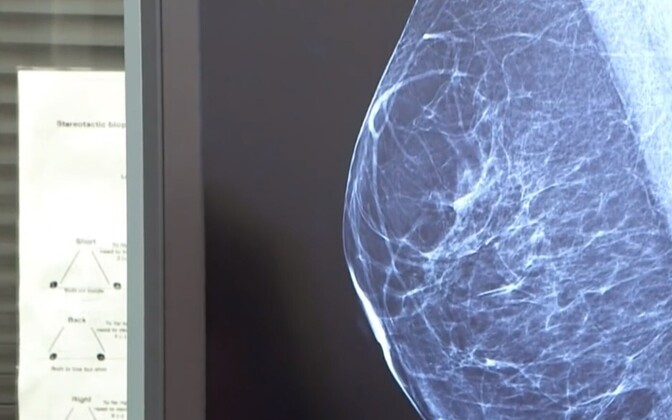The Ministry of Social Affairs has drafted an act that will allow genetic data to be used in healthcare, including for treatment and disease prevention, such as in the case of breast cancer.
The Human Genetic Research Act is scheduled to enter into force next year and it will also enable the use of personalized medicine. Among other things, the risk of breast cancer could be assessed based on genetic data and from the age of 40, rather than the current 50.
The Health Insurance Fund is implementing the initiative. The head of preventive services, Krista Kruuv-Käo, described how invitations to cancer screening will work:
“First, the woman will be selected through a national sample – she’s a certain age, let’s say 40. Then she receives an invitation, which has two options. If she is not a gene donor, she registers with a specific healthcare provider in her region to begin the genetic test. And if she is a gene donor, she should first go to the Health Information System – the patient portal – and there give her consent for the use of her data stored in the Gene Bank. From there, the process continues the same way. If she is at higher risk, she will begin mammography screenings earlier; if her risk is low, her next invitation will come at age 50.”
Kruuv-Käo said that the population-based healthcare service in Estonia will be a major step forward.
“This law allows us to move forward with the use of genetic data and to begin using both the data already available and the data that will be newly generated for the benefit of people’s health. Step by step, we are developing new services and will be able to start using them for better disease prevention and also for more accurate treatment. The law creates the preconditions for this,” she said.
Another idea under consideration is prescribing antidepressants based on genetic data, which has been discussed for several years.
—
Follow ERR News on Facebook and Twitter and never miss an update!

